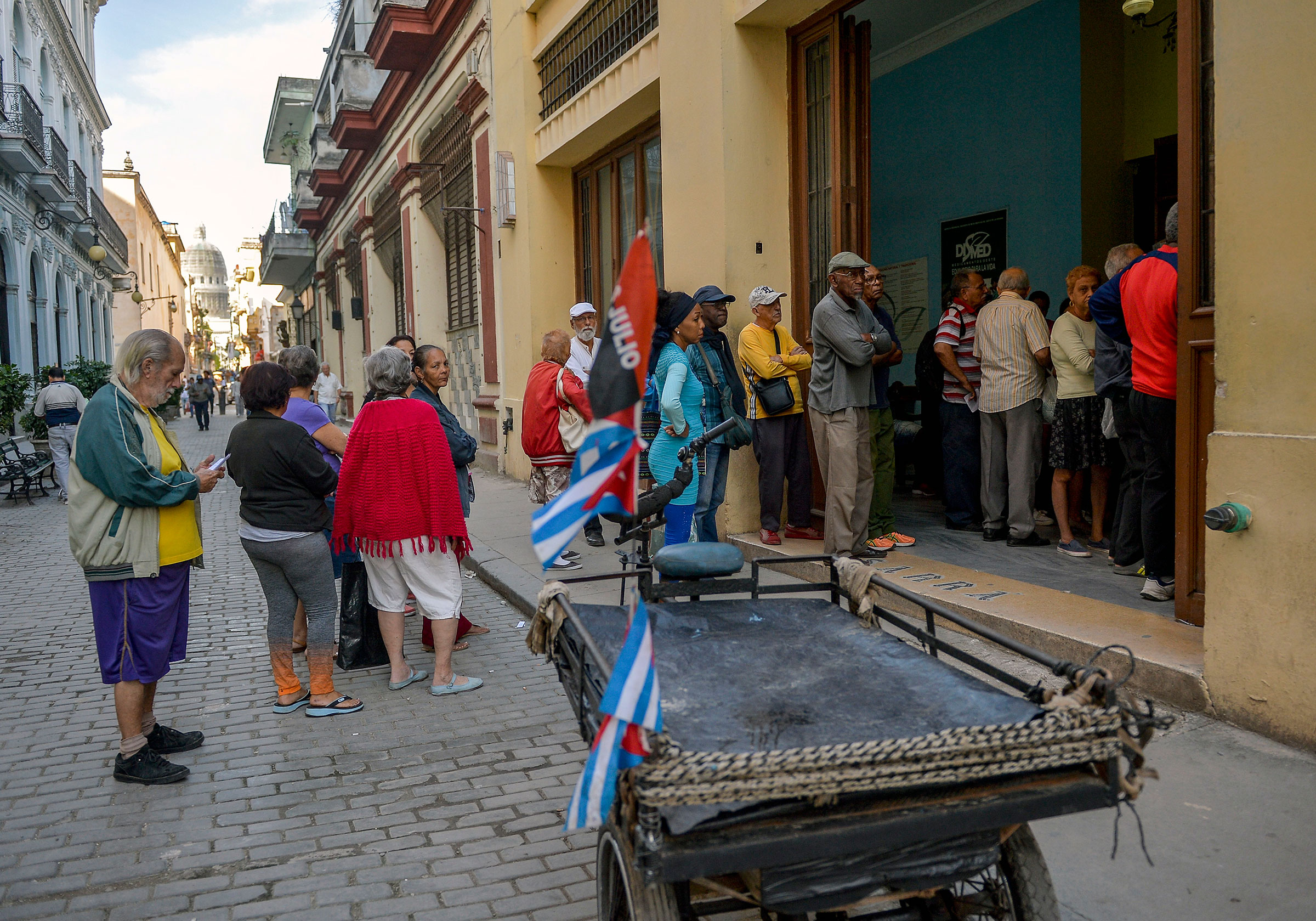
Fallout from the power struggle in Venezuela can be felt far beyond its borders, perhaps nowhere more than in Cuba. The U.S. has said Havana’s support for strongman Nicolás Maduro is helping him stay in power in Caracas; as punishment, the Trump Administration has imposed sanctions on Cuba. While Havana has pushed back on the accusation, it seems the island cannot escape the effects of the Venezuela conflict. Cuba announced new rations on food and hygiene products on May 10, stoking fears of a worsening economic crisis.
limited supply Cuba’s Interior Commerce Minister, Betsy Díaz Velázquez, said the country would start restricting the purchase of basics such as chicken, rice, beans and hygiene products like soap, to ensure “equal distribution” for all. Rationing had already begun in some parts of Cuba, and shoppers have complained for weeks of empty shelves and long lines. But the new policy will apply across the country and likely have a particularly intense effect on Cuba’s burgeoning private businesses, which often rely on state-run stores for supplies because of the government’s domination of imports and exports.
from afar Those imports are at the heart of the problem. Cuba imports two-thirds of its food each year, and Díaz said it’s had to find new sources since Washington has expanded sanctions amid controversy over Havana’s relationship to Maduro. (Cuba denies military involvement in Venezuela but recently signaled openness to helping negotiate peace there.) Last month the Trump Administration also announced it will limit money Cuban Americans can send family there and allow U.S. citizens to sue for property seized after Cuba’s 1959 revolution.
be prepared It’s not just food. Cuba’s economy grew in the late 1990s and early 2000s thanks in part to an influx of oil from Venezuela, supplies of which have also collapsed in recent months as the situation there worsens. But many Cubans remember the depression that followed the fall of the Soviet Union and worry that food and fuel shortages may be a sign of more trouble to come. “It’s not about returning to the harshest phase of [the economic crisis] of the ’90s,” Communist Party head Raúl Castro said last month. “Although we do have to be ready for the worst.”
More Must-Reads From TIME
- The 100 Most Influential People of 2024
- Coco Gauff Is Playing for Herself Now
- Scenes From Pro-Palestinian Encampments Across U.S. Universities
- 6 Compliments That Land Every Time
- If You're Dating Right Now , You're Brave: Column
- The AI That Could Heal a Divided Internet
- Fallout Is a Brilliant Model for the Future of Video Game Adaptations
- Want Weekly Recs on What to Watch, Read, and More? Sign Up for Worth Your Time
Write to Abigail Abrams at abigail.abrams@time.com